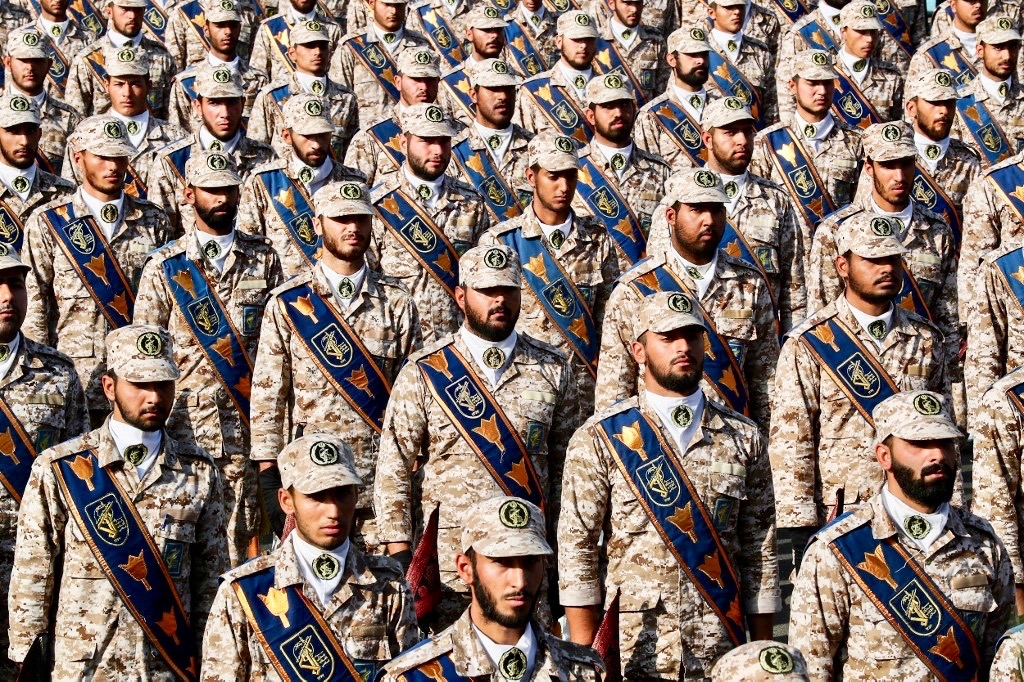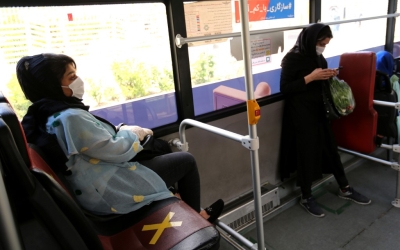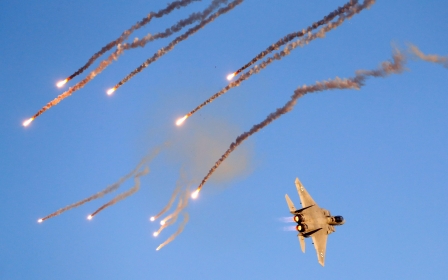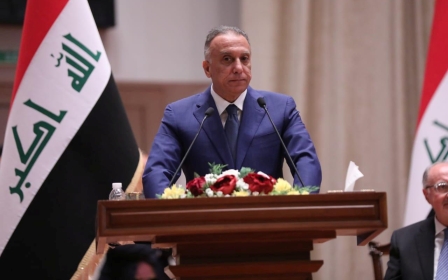Coronavirus: Iran annual anti-Israel rally to feature vehicles, not marchers

Rallies next week in Tehran to mark the annual Quds Day against Israel will involve Iranians driving vehicles, not marching through the streets, to avoid spreading the coronavirus, Iranian President Hassan Rouhani said on state television on Saturday.
The elite Revolutionary Guard will be in charge of organising the rallies, Rouhani said, adding that those joining in can still chant slogans from their vehicles and wave flags.
Rallies to mark Quds Day, which uses the Arabic name for Jerusalem, are held in towns and cities across the country and aim to show support for Palestinians, Reuters said.
Rouhani said Quds Day, held each year on the last Friday of the Muslim fasting month of Ramadan - which falls on 22 May - will go ahead as normal in 218 other towns and cities where the coronavirus pandemic has been less severe than in the capital.
"The coronavirus danger is still there, but our situation is better than before," he said. "We have crossed the main peak."
As of Saturday, Iran's death toll from the pandemic stood at 6,937, with 118,392 diagnosed cases, the health ministry said.
The ministry spokesman said the death toll in the past 24 hours was 35, while the number of new cases was 1,757.
"Despite the unfortunate loss of 35 of our compatriots in the past 24 hours, this number is the lowest in the past 70 days," health ministry spokesman Kianoush Jahanpour said, according to AFP.
Jahanpour said the southwestern province of Khuzestan had the highest number of new hospitalisations and that the situation was "critical" in most of its counties.
The key oil-producing province on the border with Iraq has become Iran's new coronavirus focal point, labelled "red" on Iran's colour-coded risk scale.
Earlier this month, the health ministry divided the country into white, yellow, and red areas based on the number of Covid-19 infections and deaths.
About 132 mosques in the white category, deemed to be low risk, were allowed to open last week.
Shia Muslim shrines dotted around the country are due to begin reopening for six hours a day after Ramadan, which is based on the lunar calendar and is expected to end around 24 May this year.
Shrines reopening
Shrines will open for three hours in the morning and three hours in the afternoon, although some areas of the shrines, such as narrow corridors, will remain closed, Rouhani said.
The president said restaurants will also reopen after Ramadan and sports activities can resume without spectators. Universities, but not medical schools, can reopen on 6 June, he added.
"We must respect social distancing until further notice... this epidemic can last for months," the president cautioned.
He said that temporary leave for prisoners will be extended until 20 June.
Iran's judiciary began progressively granting detainees furloughs in March and more than 100,000 are now on leave.
Middle East Eye delivers independent and unrivalled coverage and analysis of the Middle East, North Africa and beyond. To learn more about republishing this content and the associated fees, please fill out this form. More about MEE can be found here.





